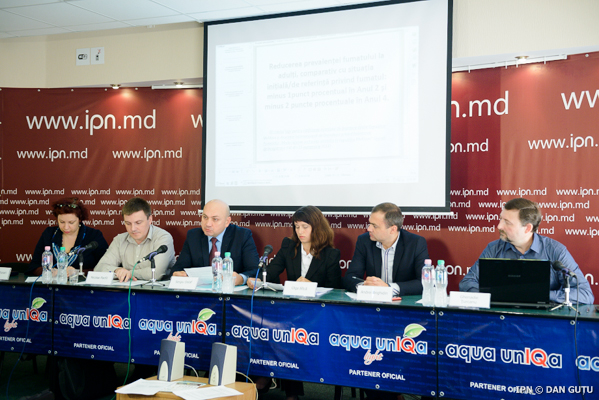A number of nongovernmental organizations call on the government to ensure greater transparency in the procedure for privatizing public property. In a news conference at IPN, representatives of the NGOs said the lack of transparency affects the public interests and arouses suspicions of corruptibility.
Chairman of the National Participation Council Sergiu Ostaf said there is a law providing that the privatization and public auctions must be transparent, but there are no mechanisms for implementing it. The best mechanism would be an information portal with data about each privatization project, from the moment the property is put up for sale until it is privatized. Currently, it is known only the list of property that is to be privatized, not yet the situation of each facility separately.
“We don’t know who the bidders are, who was selected to take part in this competition, how the property is managed and to what extent the privatization contract is fulfilled. All these aspects are absent and thus there appear suspicions as to the correctness of the privatization process,” stated Sergiu Ostaf. In 2011, the Ministry of Finance was to create an information portal to furnish data about all the purchases at public auctions. Only information about the property that is to be privatized is now published on this portal, without inidcating the prices.
“There are particular economic groups that built a clientele network with representatives of decision makers and these schemes are to the people’s detriment. We do not now who is behind this permanent gaining of public funds and cannot analyze the bids and goals pursued. This procedure is not transparent because somebody probably wants to hide aspects of the privatization and auctioning. We speak about billion of lei from the public budget,” said Sergiu Ostaf.
In the same news conference, the representatives of NGOs spoke about another shortcoming of the authorities. Head of the Anticorruption Alliance Olga Bitca said that even if the bill on the promotion of integrity in the public sector was two times in the Government’s agenda, it hasn’t been yet approved. The bill institutes the notion of ‘conflict of interests’ in the work of the National Integrity Commission, which is very important for such a commission. The bill also suggests that a larger number of categories of people vulnerable to corruption should be covered by this law, like the judges. “It’s important that these provisions be adopted and that the testing done at present cover also the sectors and categories of agents with a higher risk of corruptibility,” stated Olga Bitca.
The campaign “Countdown to the fulfillment of the Government’s promises: Returning to the seven priorities”, within which these calls to the government are made, was launched by the National Participation Council, the Civic Coalition for Free and Fair Elections, the Anticorruption Alliance, and the Civic Initiative for Integrity in the Public Service.

